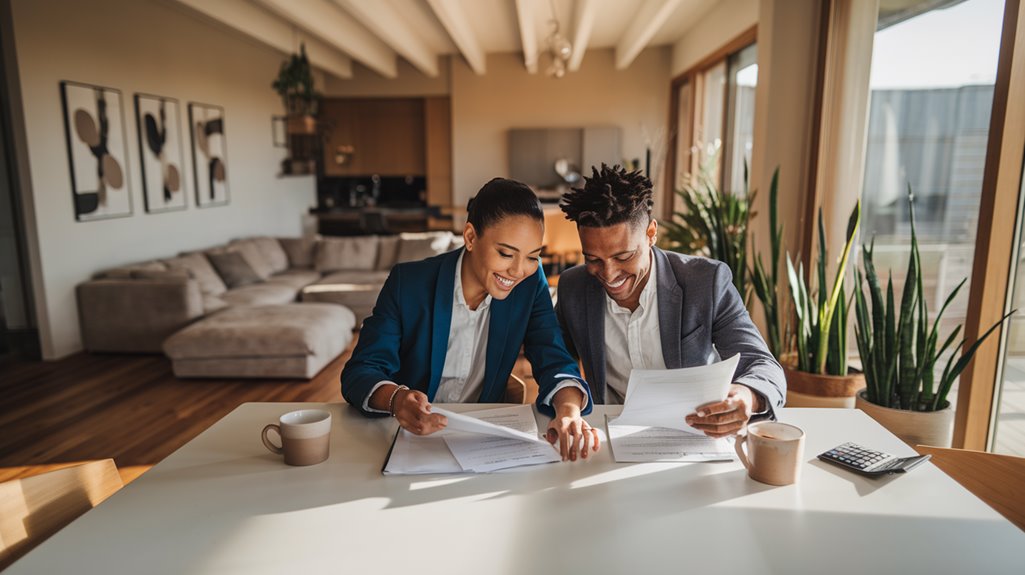Buying a home means you need extra money for closing costs. You will pay about $2 to $5 for every $100 you borrow. These costs help pay the people who make your home purchase happen.
You will need to pay fees to your lender. You will also need to buy insurance to protect your home. You must pay some property taxes up front too.
Some costs are set in stone, but you can try to lower others. You can ask the seller to pay some costs. You can also shop around for better deals from different lenders.
The main costs you will see:
- Loan paperwork: $300-$500
- Lender fees: $500-$1,000 for each $100,000 you borrow
- One year of home insurance
- Property taxes
Know these costs before you buy. This helps you save money and make smart choices about your new home.
Ready to start building equity in your own Michigan home? Get your personalized home loan quote today.
Understanding Common Closing Costs
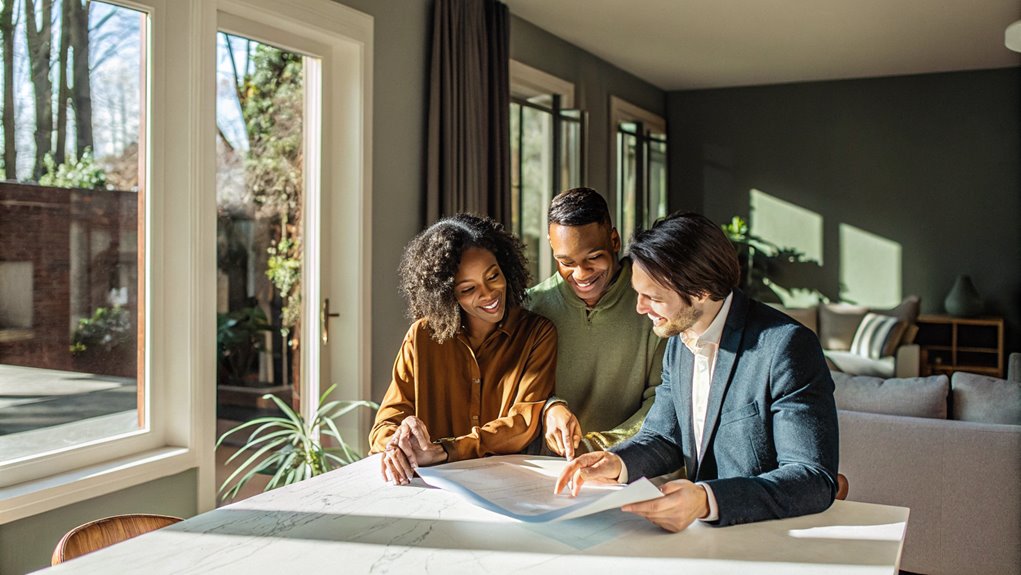
Buying a home comes with extra costs you need to pay at the end. These costs are usually about 2 to 5 cents for every dollar you borrow.
You will pay fees to the bank for your loan. This means paying for someone to check your house's value and look at your credit score. You also need to pay people who make sure the house can be yours, like the title company and the person who signs legal papers.
You must also pay for things that protect your house. This means paying taxes on the land, buying insurance if something bad happens, and fees if your house is part of a group of homes.
The bank will ask you to pay some money early for your loan and insurance too.
Having a good idea of these costs helps you save the right amount of money. You can also talk to the seller about who'll pay for what. This way, you won't have any big surprises when you get your new home.
Michigan residents, unlock the door to your new home. Request your home loan quote from Treeside Financial today.
Lender Fees Explained
Getting a home loan comes with some costs. Your bank will ask for money to help set up your loan. Think of it like paying someone to do paperwork for you.
They charge between $5 to $10 for every $1,000 you borrow. You also need to pay around $300 to $500 at the start. This money helps the bank check your money records and see if you pay your bills on time.
While you must pay these costs, you can look at what different banks charge. This helps you find the best deal.
Loan Origination Fee Details
Getting a home loan comes with fees you need to pay. The biggest fee is called a loan fee. You'll pay about $500 to $1,000 for every $100,000 you borrow.
This fee pays for people at the bank to:
- Look at your credit
- Check your income
- Get your papers ready
When you get your loan papers, you'll see this fee listed. Some banks show it as one big fee. Others break it into smaller fees.
You can ask the bank to lower this fee. This works best when you talk to many banks about your loan.
The more you know about these fees, the more money you can save when buying your home.
Application Processing Charges
Getting your loan ready costs money. Your lender needs to pay for a few things first.
You will need to pay for:
- A look at your credit score ($30-$50)
- A check to see if your home might flood ($15-$25)
- Help with tax papers ($50-$100)
- Proof that you have a job ($15-$30)
Your lender might put all these costs into one big fee. Or they might show each cost on its own. Most of these fees are set and can't be changed.
But you can look at different lenders to find the best deal. Ask to see a list of all the costs. If you see any odd fees, ask what they're for. It's your money, so it's okay to ask questions.
Title and Insurance Charges
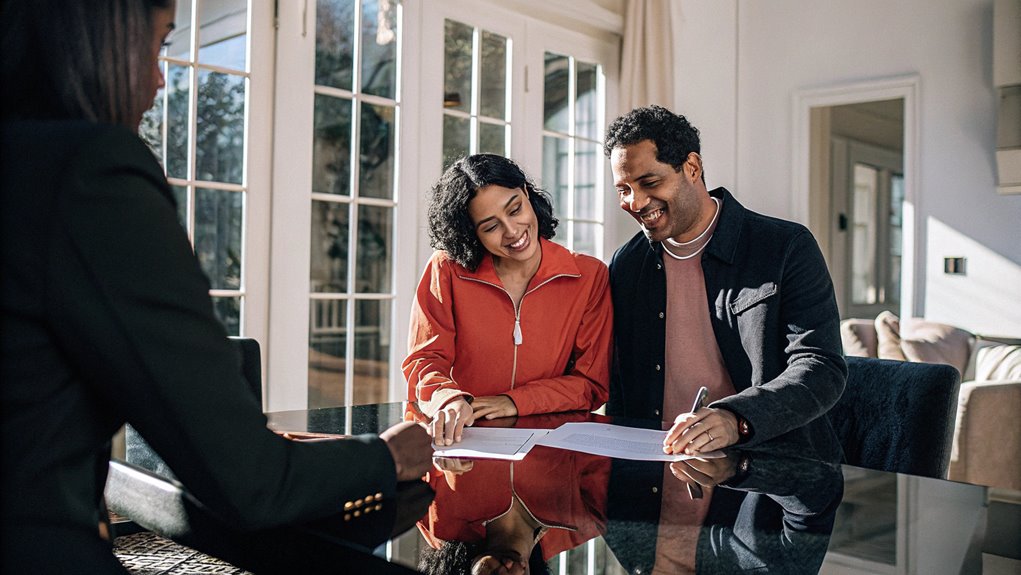
When you buy a home, you need to pay for special protection called insurance. These costs are part of what you pay when closing on your house.
You need several types of insurance to stay safe:
- Someone must look up who owned your house before. This makes sure no one else can claim it's theirs.
- Your bank needs insurance to protect their money in your house.
- You can get your own insurance to protect your money in the house too.
- Home insurance keeps your house safe if something bad happens. You pay for the first year right away.
All this insurance starts working as soon as you get your new house keys. It keeps you and your home safe from day one.
Property-Related Expenses
Buying a home means paying some costs right away for your property.
You'll pay taxes on your new home from the day you buy it. Sometimes the old owner already paid these taxes, so you'll pay them back.
Your bank wants you to pay for one year of home insurance before you move in. This keeps your home safe from day one.
If you join a group that takes care of your neighborhood (HOA), you need to pay them right away too. You might pay for a few months at once.
Your bank may also ask you to save money with them for future taxes and insurance.
You might need to pay for bug checks and land surveys too. Some cities ask for extra fees when you buy a home.
Government and Recording Fees
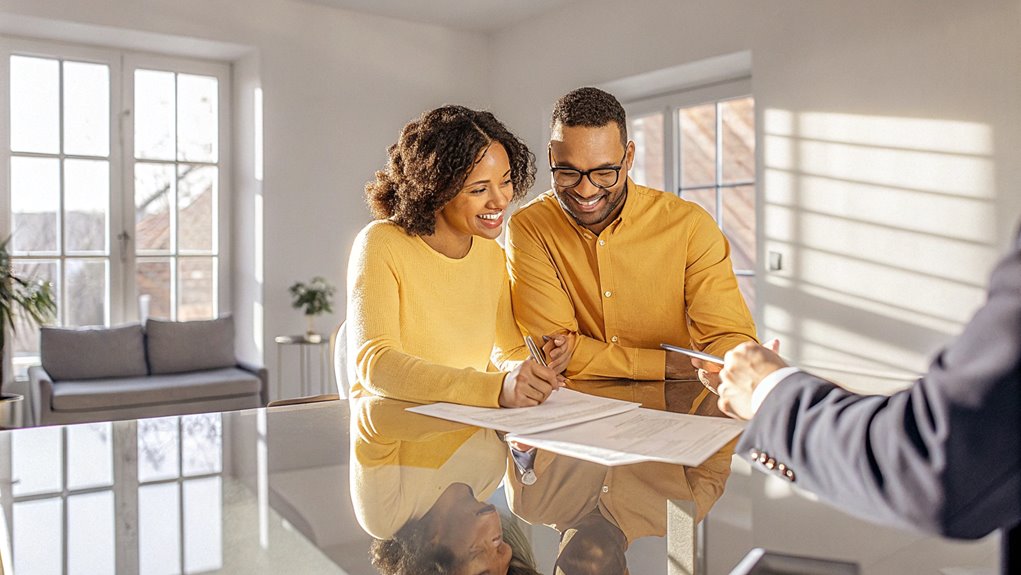
When you buy a home, you need to pay some important fees. These fees help make sure the house becomes yours on paper.
The main fees you pay are:
Recording Fees: You pay these to put your name on the house papers at your local office.
Transfer Taxes: The city and state ask for money when someone sells a house to another person.
Special Papers: You need to get some papers from your city to show the house is OK to buy.
Tax Money: You and the seller will split the property taxes for the year.
You must pay these fees. They help make your home purchase legal and safe. Without them, you can't finish buying your house.
The fees are different in each city and state. Your agent can tell you how much they cost where you live.
Negotiating Your Closing Costs
When you buy a home, you can ask sellers to help pay some of your costs.
Talk to a few banks to see who'll give you the best deal. Look at what each bank wants to charge you.
Some costs, like bank fees and house papers, can be lower if you ask. The more you know about these costs, the more money you can save.
Ask About Seller Concessions
When you want to buy a home, you can ask the seller to help pay some of your costs. This is called a seller concession. It means less money out of your pocket when you buy the house.
Talk to your agent about asking the seller for help. Different types of home loans have rules about how much help you can get:
- For FHA loans, sellers can give up to 6% of what you pay for the house
- For regular loans, sellers can give 3-9%, based on how much you put down
- For VA loans, sellers can give up to 4%
- For USDA loans, sellers can give up to 6%
The help from sellers doesn't make the house cost less. Instead, it helps pay for things like fees and other costs when you buy the house. This makes it easier for you to buy your new home.
Compare Multiple Lender Offers
Looking at different loans helps you get the best deal on your home. Try to get offers from 3-4 banks. Each bank will give you a form called a Loan Estimate that shows what you'll pay.
These forms make it easy to see what each bank wants to charge you. Look at all the fees and costs from A to J on each form. Some costs will be the same at each bank, but others will be different.
You can ask banks if they'll match lower prices from other banks. Many banks want your business and will work with you.
After you get all the offers, add up what each loan will cost you over time. Think about both the monthly payments and the costs you pay at the start. This helps you pick the loan that saves you the most money.
Understand What's Negotiable
Let's talk about how to save money on your home loan costs. You can ask for better prices on many of the fees you'll pay.
Some fees have fixed prices that can't change. But you can talk about the price of other fees with your lender.
Here's what you can ask to pay less for:
- Loan fees: If you have good credit or other banks want to work with you, your bank might lower these fees.
- Insurance for your home's title: You can pick your own title company to get a better price.
- Lawyer costs: You can talk to many lawyers to find the best price.
- Home check-up costs: You can call different home inspectors to find the best deal.
These simple steps can help you save real money when you buy your home. Don't be shy – ask about better prices!
When to Pay
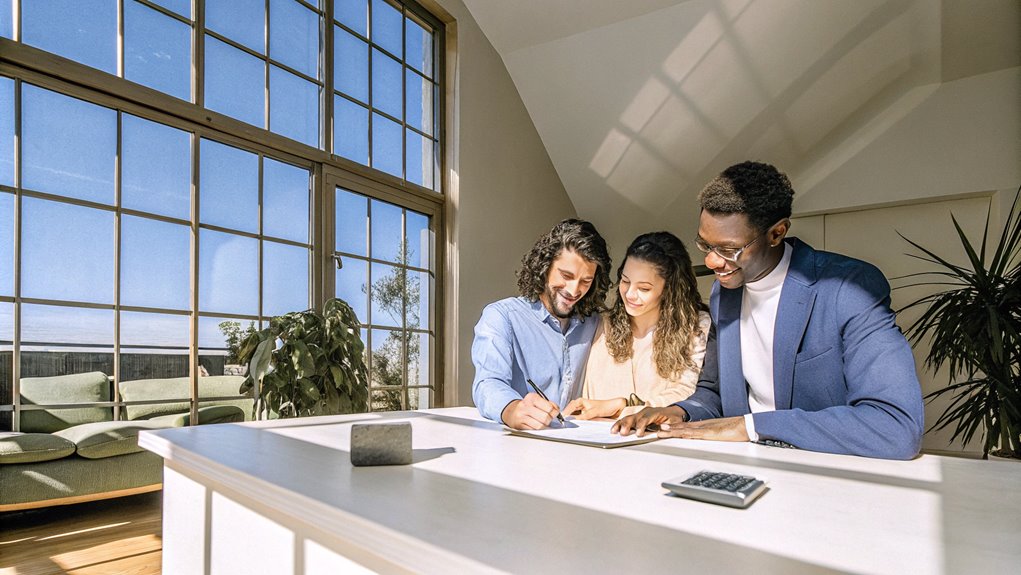
Buying a home means paying different costs at different times. Let's break it down:
Right after the seller takes your offer, you need to pay two things. First, you put down some money to show you're serious about buying. Then you pay someone to check if the house is in good shape.
Next, you pay for someone to tell you what the house is worth. This happens in the first few weeks.
If you want to pay less each month, you can buy points. You pay for these points on the day you get your house.
Your bank will tell you the total costs three days before you get your keys. They send you a paper that shows all the money you need to pay.
On the big day, you pay with a special check or send the money right to the bank.
Ways to Save Money
Buying a home? You can save money with a smart plan. Think of it like finding the best price on a big toy – you need to look at many stores!
Get three or more banks to tell you what they can offer. Look closely at what they charge you to give you the loan. Some banks cost more than others.
Look for your own people to help with things like:
- Checking the house is OK
- Making sure no one else owns the house
- Helping with all the papers
Talk to your bank about ways they can help pay some costs. They might help if you pay a bit more each month.
Pick the last days of the month to buy your house. This means you pay less money right away on the day you get your keys.

